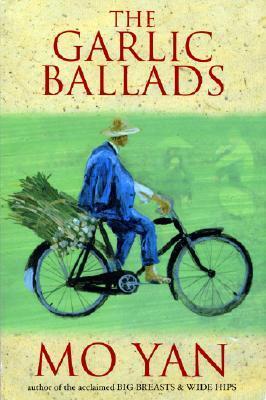
The farmers of Paradise County have been leading a hardscrabble life unchanged for generations. The Communist government has encouraged them to plant garlic, but selling the crop is not as simple as they believed. Warehouses fill up, taxes skyrocket, and government officials maltreat even those who have traveled for days to sell their harvest. A surplus on the garlic market ensues, and the farmers must watch in horror as their crops wither and rot in the fields. Families are destroyed by the random imprisonment of young and old for supposed crimes against the state. The prisoners languish in horrifying conditions in their cells, with only their strength of character and thoughts of their loved ones to save them from madness. Meanwhile, a blind minstrel incites the masses to take the law into their own hands, and a riot of apocalyptic proportions follows with savage and unforgettable consequences. The Garlic Ballads is a powerful vision of life under the heel of an inflexible and uncaring government. It is also a delicate story of love between man and woman, father and child, friend and friend—and the struggle to maintain that love despite overwhelming obstacles.
Author

Modern Chinese author, in the western world most known for his novel Red Sorghum (which was turned into a movie by the same title). Often described as the Chinese Franz Kafka or Joseph Heller. Mo Yan (莫言) is a pen name and means don't speak. His real name is Guan Moye (simplified Chinese: 管谟业; traditional Chinese: 管謨業; pinyin: Guǎn Móyè). He has been awarded the Nobel Prize in Literature 2012 for his work which "with hallucinatory realism merges folk tales, history and the contemporary". Among the works highlighted by the Nobel judges were Red Sorghum (1987) and Big Breasts & Wide Hips (2004), as well as The Garlic Ballads. Chinese version: 莫言